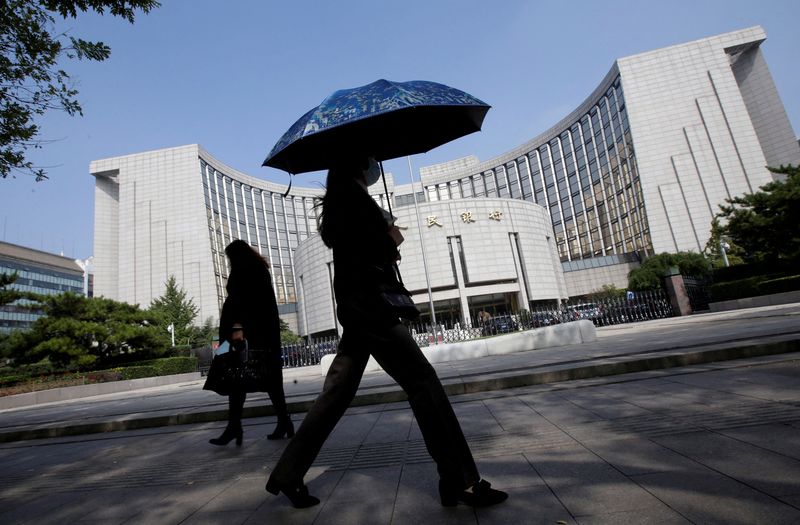A look at the day ahead in European and global markets from Wayne Cole.
It's been a quietly positive start to the week for markets with China's central bank lowering its 14-day repo rate by 10 bps, a couple of days after disappointing markets by not cutting longer-term rates.
Analysts cautioned the move was only catching up to an already delivered cut to 7-day repo rates but stocks were happy for anything and added 0.6%.
Japan is on holiday but Nikkei futures are trading 740 points above the cash close. Wall Street and European futures were all up between 0.2% and 0.6%.
The dollar and euro extended gains on the yen in the wake of Friday's dovish comments by the head of the Bank of Japan.
The S&P is up 1% so far in September, historically the weakest month for stocks, and has gained 19% year-to-date to reach all-time highs.[.N]
More than 20 billion shares changed hands on U.S. exchanges on Friday, the busiest session since January 2021. Analysts at Bank of America noted the S&P rises an average of 21% when there is no recession in the 12 months after the start of Fed cuts.
Markets were still basking in the afterglow of the Federal Reserve's half-point rate cut, with futures implying a 50% probability it will deliver another outsized move in November.
At least nine Fed policy makers are speaking this week, including prepared remarks from Chair Jerome Powell, two governors and New York Fed President John Williams.
Much will depend on what the Fed's preferred inflation gauge, core personal consumption expenditures (PCE), shows on Friday. Analysts expect a 0.2% month-on-month rise taking the annual pace to 2.7%, while the headline index is seen slowing to just 2.3%.
The coming week also includes surveys on global manufacturing, U.S. consumer confidence and durable goods.
The Swiss National Bank meets on Thursday and markets are fully priced for a quarter-point cut to 1.0%, with a 41% chance it will ease by 50 basis points.
Sweden's central bank meets on Wednesday and is also expected to ease by 25 basis points, again with some chance it might go larger.
One bank not easing is the Reserve Bank of Australia (RBA), which meets on Tuesday and is considered almost certain to hold at 4.35% as inflation proves stubborn.
Investors were also keeping a wary eye on negotiations to avoid a U.S. government shutdown with just days before the current $1.2 trillion in funding runs out on Sept. 30. Republican U.S. House of Representatives Speaker Mike Johnson on Sunday proposed a three-month stopgap funding bill but now it has to go to vote.
Key developments that could influence markets on Monday:
- Flash September PMIs for Europe and U.S., Chicago Fed activity index

- Appearances by European Central Bank board member Piero Cipollone and ECB board member Frank Elderson
- Speeches by Fed Bank of Atlanta President Raphael Bostic, Fed Bank of Chicago President Austan Goolsbee and Fed Bank of Minneapolis President Neel Kashkari
(By Wayne Cole; Editing by Edmund Klamann)